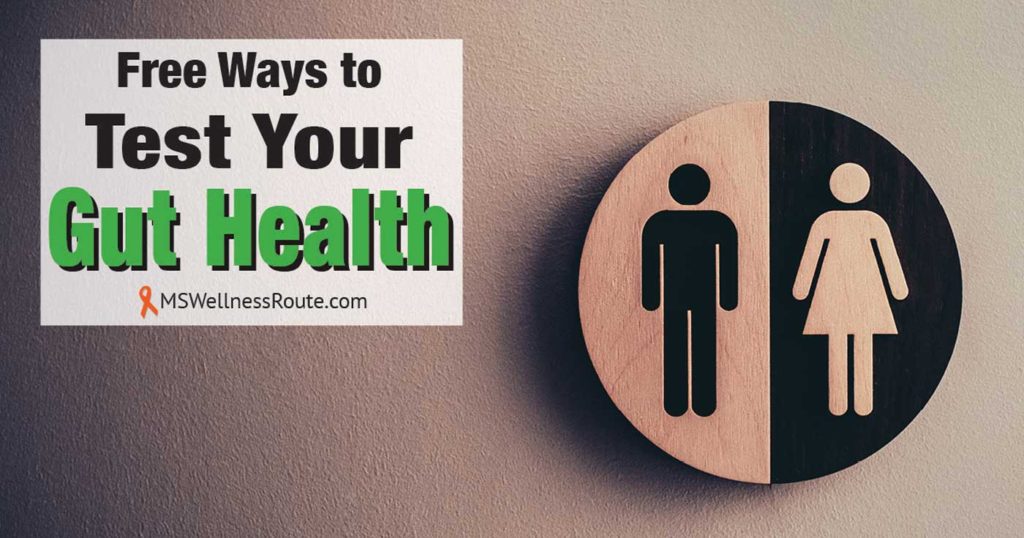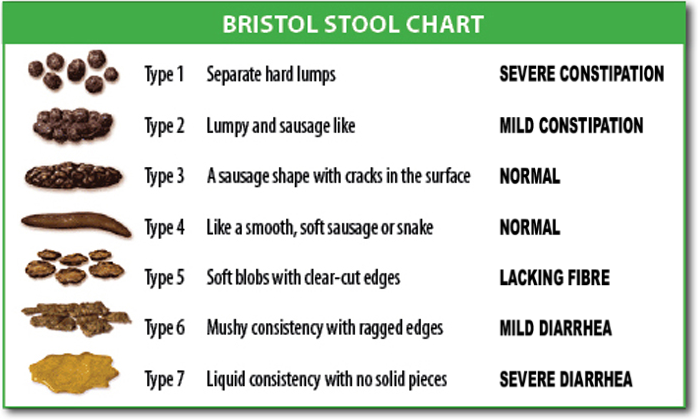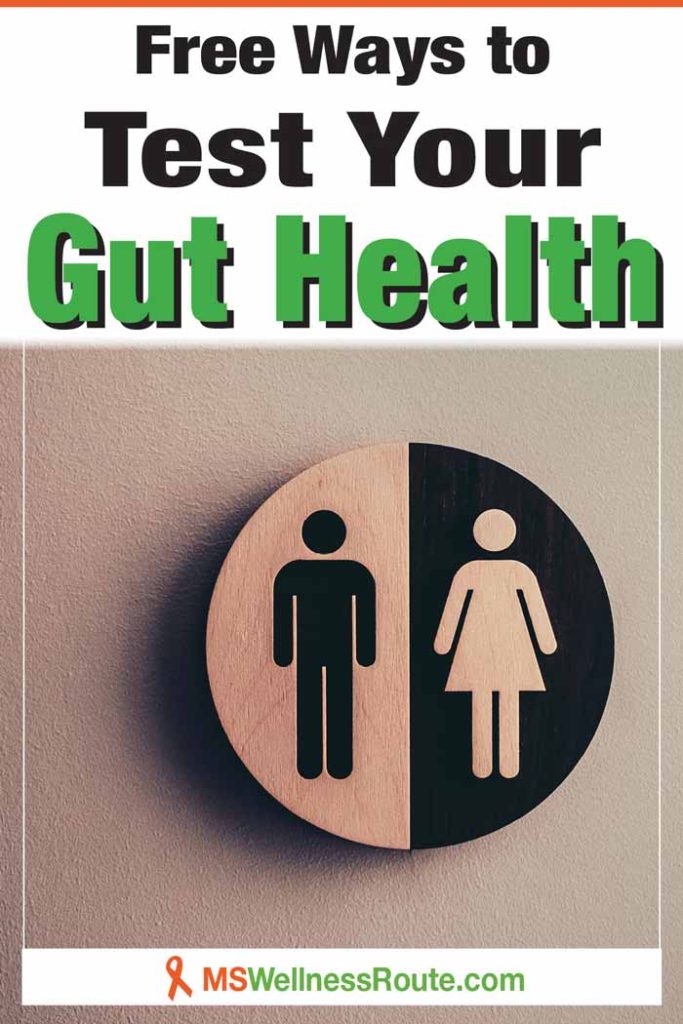Last Updated on November 26, 2023 by Cathy

People with multiple sclerosis (MS) have more bad bacteria in their gut than healthy people. But, how do you know if you have an unhealthy gut? Fortunately, you have ways to test your gut health to start feeling better.
When it comes to a healthy body the gut is just as important as the brain, heart, and other vital organs. A healthy gut supports your immune system and overall health. An unhealthy gut leads to disease.
Get Your FREE Gut Health Tracker
Visit a Functional Medicine Doctor
We now know how important gut health is for our brain health and immunity. Fixing your gut health should be a top priority. There are many things you can do to improve your gut health, and testing is one.
You could see a functional medicine doctor for testing. If you have severe bloating the doctor may have you get a breath analysis test. A breath test will check if you have small intestinal bacterial overgrowth (SIBO). Unfortunately, this test isn’t always accurate. It sometimes gives false negatives or positive results. A stool analysis test involves sending a stool sample to a lab for inspection. They will test and reveal exactly what is wrong in your gut.
Stool analysis tests for:
- Bacterial or fungal overgrowth
- Enzyme levels
- Leaky gut
- Malabsorption of fat
- Parasites
- Poor nutrient absorption
Viruses
Visiting a functional medicine doctor and getting tested is the best option. But it is also expensive. Fortunately, there are ways to test your gut health without paying a fortune. And you can do them in the privacy of your own home.
Visual Inspection
Yes, you have to look at your own poop. This is an easy and great way to tell how your gut and digestive system is working. You should do this every time you have a bowel movement since it can change with every meal.
Pay attention to how often you have a bowel movement. You should have one or more bowel movements each day. If not, this is an indicator of poor gut flora balance. How often you have a bowel movement is important for determining the health of your gut.
If you aren’t having daily bowel movements you risk the chance of infections and microbiome imbalance. Some foods move faster through your digestive system than others. Plus, everyone is different so don’t compare yourself with others.
To increase your bowel movements eat more vegetables. Also, eat more foods that are higher in fiber and resistant starch. Resistant starch that can’t be digested. Instead, it passes to the colon to be fermented by the microbiome.
Bristol Stool Chart
The Bristol Stool Chart is an easy way to gauge your gut health. 1 means you are severely constipated, 7 means you have diarrhea. You should be either at 3 or 4.

From Wikipedia, the free encyclopedia.
If you suffer from constipation it could be from:
- Eating a low-carbohydrate diet
- Low levels of beneficial gut bacteria
- Not eating enough fiber
- Recently taking antibiotics
- If you often have diarrhea it could be from:
- Crohn’s disease
- Extreme gut problems
- Food poisoning
Some herbal teas help with constipation such as:
- Chamomile
- Dandelion
- Ginger
- Get Regular
- Green tea
- Peppermint
- Senna
- Smooth Move
Illness
4 is the best. 5 is normal but it could indicate that the food particles aren’t completely broken down. 3 is okay but it may lead to constipation. If you have 1, 2, 6, or 7 your gut health is in trouble and it needs attention immediately.
Floating
A floating stool is an indicator there could be too much gas, an infection, or another health issue. Lactose intolerance can also cause floaters. If floaters happen often it could be a sign of poor gut health.
Transit Time
Transit time means how long it takes for food to pass through your digestive system. Of course, every food item is different. If you eat a lot of cherries all at once you’ll be running to the bathroom pretty quick. It also depends on how hydrated you are and whether the patient is in a wheelchair or has mobility issues.

If it’s too slow you could mean you’re constipated, if it’s too quick you may not be absorbing the nutrients. Eating beets is the best way to test your transit time. Corn also works but it’s a grain so you should be avoiding it.
Here’s how it works:
- Note the time when you eat it
- Then wait until it reappears in your stool
Look for a purple/red color in your stool. Beets also change your urine color so don’t be too alarmed. The transit time should be anywhere from 12 to 48 hours. If it’s longer this is an indicator of constipation.
Probiotics and Prebiotics
Now that you have an idea of your problem it’s time to correct it. For starters eat an anti-inflammatory diet that heals your leaky gut. Eat plenty of foods high in fiber to feed the good bacteria in your gut.
Probiotic foods:
- Coconut milk kefir
- Coconut milk yogurt
- Fermented vegetables
- Kimchi
- Kombucha
- Miso (fermented soybean paste)
- Natto (fermented soybeans)
- Pickles
- Sauerkraut
Also include prebiotic foods, which are carbohydrates your body can’t digest. Instead, they go to your lower digestive tract to feed the good bacteria. Prebiotics, like fiber, keep you from becoming constipated.
NOTE: It’s not recommended to take prebiotics if you have SIBO or FODMAP intolerance.
Quick Links To Information In This Post:
Tips To Heal Your Leaky Gut
How To Restore Healthy Gut Flora
How Long Does It Take To Heal A Leaky Gut?
Prebiotic foods include:
- Apples
- Asparagus
- Bananas
- Dandelion greens
- Flaxseeds
- Garlic
- Jerusalem artichokes
- Jicama
- Leeks
- Onions
- Gut Health
Gut health is more than just a diet. What you put on your skin, the antibacterial soap you use, and antibiotics all kill the good bacteria. To increase your microbiome avoid products that kill the good bacteria.
Granted, if you need to take an antibiotic then do it but include a probiotic to increase the good bacteria. Just make sure you take it at a different time of day of the antibiotic. For example, take the antibiotic in the morning and the probiotic in the evening.
Going outside and getting dirty also improves your microbiome. Plus, being outdoors lifts your spirits and calms your stress. Spend a little time outdoors each day (weather permitting).
Ways to improve your microbiome:

- Avoid antibacterial soap
- Check for food intolerances
- Drink plenty of water
- Eat a large variety of fruits and vegetables
- Eat a nutrient-dense diet
- Exercise
- Get plenty of sleep
- Get your hands dirty while gardening
- Include fermented foods
- Learn to manage your stress
- Take a probiotic
- Use natural body care products
- Walk barefoot in the grass
Heal Your Leaky Gut
To heal from MS, gain more energy, and improve brain fog you need to heal your gut. Improving your gut health will improve your quality of life.
It is possible to improve and heal your leaky gut.

Free Wellness Library!
Subscribe for free and I’ll send you the password to my secret library filled with many printables including the Gut Health Tracker.
Want to remember this health tip? Pin it to your favorite Pinterest board!

Resources:
https://www.ncbi.nlm.nih.gov/pmc/articles/PMC3823506/
Free Ways to Test Your Gut Health





